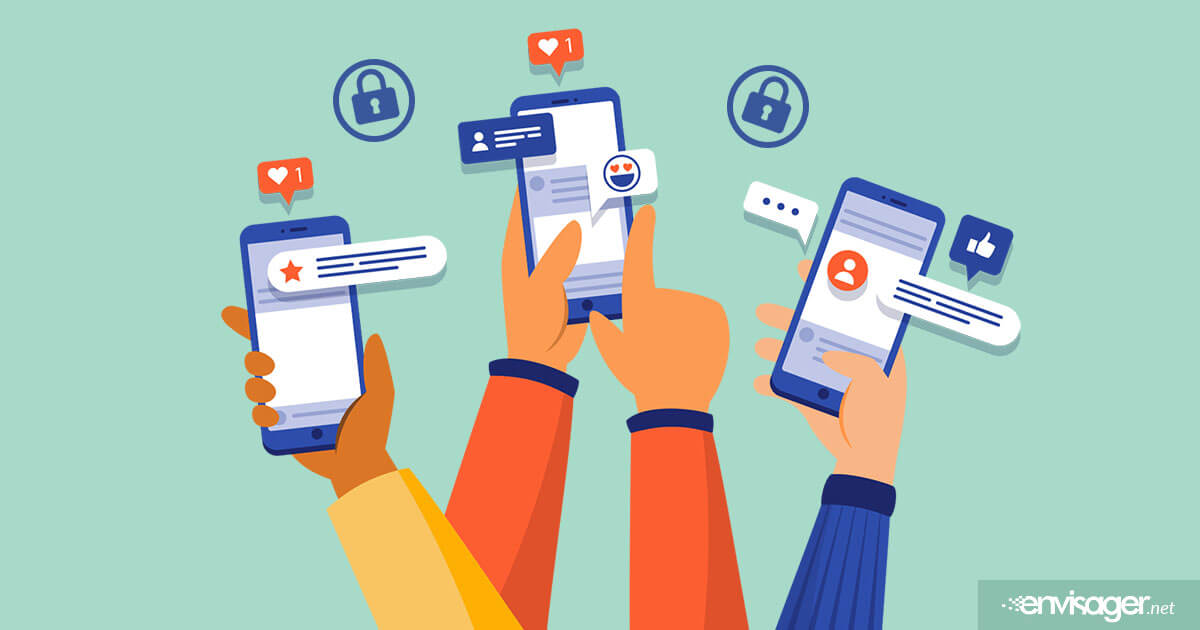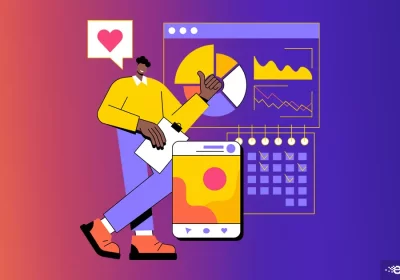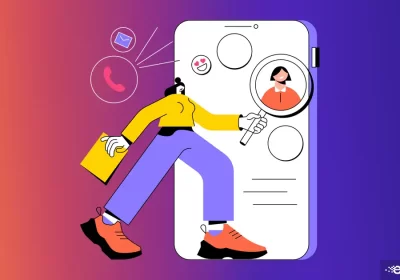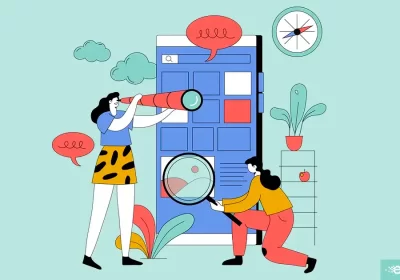4 Social Media Safety Tips To Secure Social Network Accounts

Social networks like Twitter, Facebook, Instagram, etc., connect us with our customers, family and friends. Almost every enjoys using social media.
Whether it’s watching how-to videos on Instagram or the latest world news on Twitter, social media is a part of our daily routine.
Reduce Your Exposure To Hackers
Social media has the power to build brand awareness and increase your customer base. Using it to interact with customers is an important marketing strategy for small businesses.
Additionally, it is an incredibly easy tool to use to find people as much of the world uses social platforms.
However, the majority of users are not knowledgeable when it comes to safety, and expose themselves to cyber attacks. They often unknowingly disclose private information about themselves.
Attackers can use this information to commit serious crimes like stealing your identity or financial information. Here are four social media safety tips you can use to make your account more secure.
Using a Password Manager Is One Of The Most Important Social Media Safety Tips
Many people use frail passwords and even reuse them to login on other sites. They do this because strong and oftentimes peculiar looking passwords are difficult to remember. But, reusing passwords is a security risk. In the past, there has been countless instances of data breaches. Even on reputable sites.
For password leaks, criminals would have the combination of your password, email address and username. They can use this information to attempt logging in on other sites.
And if you use the exact same password for multiple accounts and a leak occurs, the attacker will have access to all these accounts.
Generally, we access our social media accounts on several devices – phones, tablets and PCs. When you login using a new device, it’s important to make sure it’s secured from cyber threats. One way to do this is by using a strong antivirus package.
The solution to your password woes is to use a password manager. They offer greater security and convenience for the use of passwords to access online services. It stores your user login details and enables you to login automatically. Additionally, a password manager encrypts the password database using a master password.
There are many password mangers to choose from. To get you started, have a look at LastPass and 1Password for available features.
After you setup your password in a password manager, they are easy to use. For example, say you wanted to login to Facebook using your password manager. Rather than keying in your password on this site, you’ll be asked to key in your master password. This would be the password to the password manager.
The password manager automatically feeds the correct login details to your Facebook account or whichever account you’re logging into.
And there you have it. No more thinking of your username, email address, phone or password that you normally use for conventional logins.
Users are allowed to generate two-factor authentication that enables sending of passcode to their phones. Or, setup multi-factor authentication that gathers their biometric details such as fingerprint for authentication.
When registering a new account, a password manager allows new users to create a protected, random password. You will not have to struggle to memorize it.
Reject Random Friend Requests
You may have a couple hundred friends and by now you’ve included almost all of them. So, what is the point of accepting friend requests from total strangers? Accepting requests from people that we don’t know is a bad idea for a number of reasons:
- They can see what you post or comment.
- You are giving them access to view all your activities.
- It’s unnecessary for them to see photos of your lovely family. Or know where your beloved daughter goes to school.
- Your marital status and job information is accessible to them.
A stranger may have bad intentions and use this information to steal your identity. So, don’t be in a hurry to accept all friend requests. Instead, do a through screening by clicking on their name or business name and view their profiles.
Most people want to have a large following with little knowledge about the kind of people they are exposing themselves to. This is one of the most common mistakes seen on social media.
It’s dangerous to accept requests from everyone on social media. Rather, we should be choosy as there are people who are looking for your personal information with evil intentions.
With access to your name, date of birth, occupation, location and other information, it’s easy for criminals to impersonate you.
They can send malicious links using your name to your friends. Upon clicking these links, your friends will be directed to compromised sites infected with malware. Or, phishing sites meant to lure them into disclosing their financial information. All done in YOUR name!
Don’t Disclose All Your Personal Information
When you’re creating accounts online, think about the potential risks of providing certain types of information. And, ask yourself is it necessary for that platform to have that information? Read their privacy policy and thoroughly customize your privacy settings.
Personal information offers criminals instant access to your credit information, bank accounts, and even your assets.
Hackers send emails and messages that appear to be legitimate. They will use well-known financial or government names. And also, online merchants and organizations that you might have conducted business with.
In the message, you might be instructed to click a link or call a number to claim a prize. Sometimes, these communications will even state that you’ll face consequences if you don’t respond. Unfortunately, these types of correspondences are oftentimes a result of sharing too much personal information on social media.
Log Out When Done
Imagine what will happen if you lose your phone with all your accounts logged in. If it falls into the hands of hackers, you’re in trouble. Its safer to always log out from your social media accounts, especially on mobile devices.
Wrapping It Up
I hope you find these social media safety tips helpful. But, there are countless ways to keep criminals away from your social accounts. And the majority of them won’t even take five minutes. The above suggestions not only apply to social networks, but are also ways to stay safe when browsing the internet.
Envisager Studio is a web design and marketing agency in San Diego. Our marketing and web design services are offered at affordable prices. For further information, please contact us today.

Darrel Carpenter
DIRECTOR OF DEVOPS
Darrel brings to the table 10 years of education, more than 20 years of engineering experience, and 3 decades of tireless tinkering. He is our Systems Administrator, Network Engineer and builds all the infrastructure that powers our client’s websites, emails and more. In his off time, he enjoys writing about writes about servers, content management systems, cloud computing, web hosting, and more.


